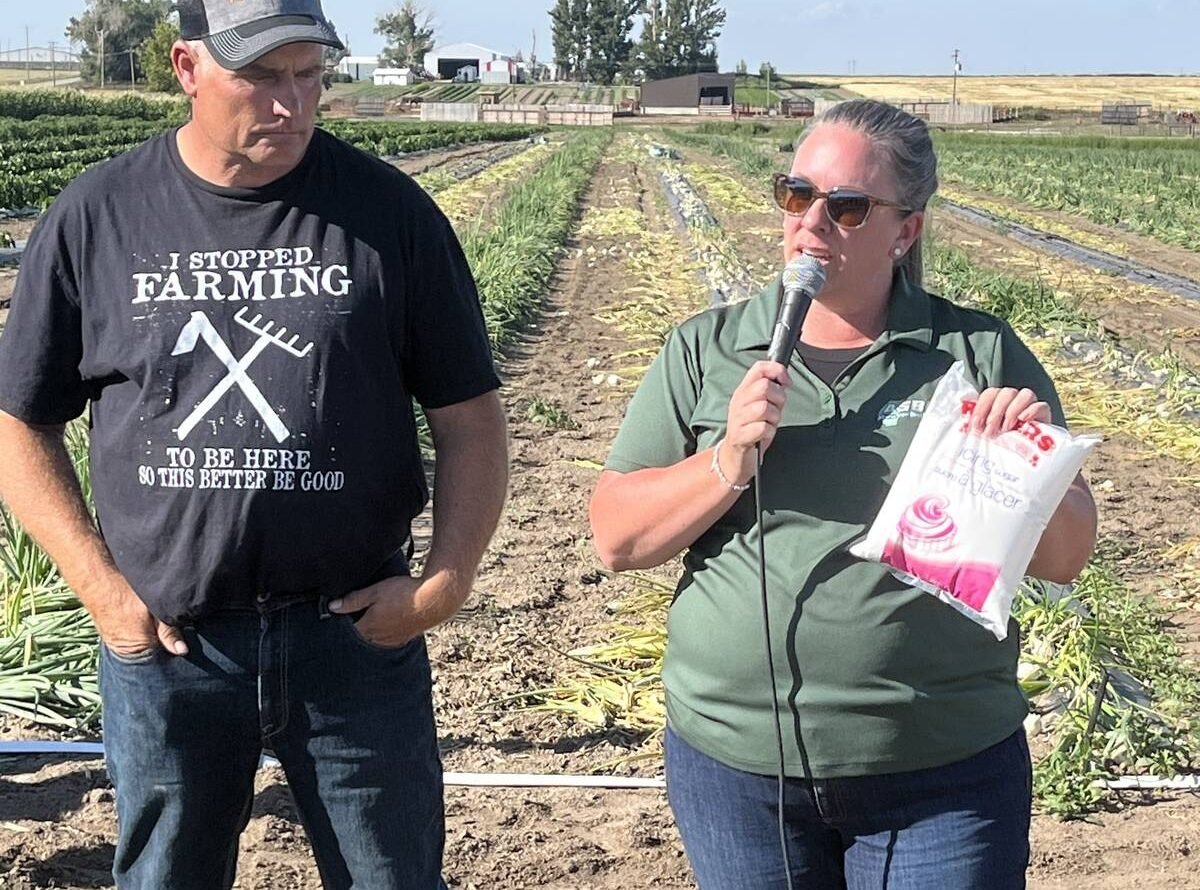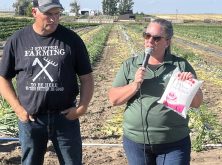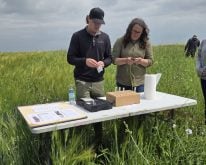British bakery company Warburton’s Foods has added a popular midge tolerant wheat line to the list of varieties approved for use in its products.
AC Unity VB, a varietal blend being distributed through SeCan, has been added to the list of select wheat varieties that qualify for production under Warburton’s identity preserved program.
AC Unity VB is one of three midge-tolerant varietal wheat blends that will be available this year to commercial grain producers in Western Canada.
The others are AC Goodeve VB, a red spring blend distributed by Alliance Seeds, and AC Glencross VB, a CWES variety distributed by Faurschou Farms.
Read Also

Alberta’s beets a sweet domestic segment in Canada’s sugar supply
The sugar beet industry is showcased during a Farm to Table tour, as Taber features the last remaining sugar beet processing plant in all of Canada.
“Warburton’s Foods has been testing AC Unity VB for a number of years and the quality is very good,” said Warburton’s program manager Adam Dyck.
The company will be accepting a limited number of AC Unity VB acres in 2010, he added.
“This is the first step in Warburton’s Foods’ initiative to upgrade the current varieties being contracted in our program,” Dyck said.
Midge tolerant wheat varieties are a relatively new concept to western Canadian farmers.
They contain a single gene, the Sm1 gene, which provides the plant with tolerance to the orange blossom wheat midge, a tiny insect that can cause yield and quality losses worth tens of millions of dollars each year.
Basing tolerance on a single gene is a precarious strategy.
To preserve the efficacy of the Sm1 gene, plant breeders are using a strategy known as an interspersed refuge system.
The wheat is sold as a varietal blend that contains 90 percent midge tolerant seeds and 10 percent susceptible seeds.
Susceptible seeds are known as the refuge variety.
Blended seed lots that contain a ratio of 90 percent midge tolerant seeds and 10 percent midge susceptible seeds would delay the development of virulent midge populations.
In a 90:10 blend, non-virulent midge will survive on susceptible wheat plants and the non-virulent insects would mate with virulent insects producing non-virulent offspring.
By employing this strategy, plant scientists believe the life expectancy of the midge tolerant Sm1 gene can be extended by more than 80 years.
While demand for midge tolerant varietal blends is expected to be brisk this year, supplies are limited.
SeCan officials are recommending that producers contact a seed grower quickly to secure supplies for 2010 planting.
“In the first year of any variety, it’s usually in short supply because of high demand,” said Jim Downey, SeCan’s research and development manager.
“Price will be at a premium to existing or older varieties,” he added.
Midge tolerant varieties have been field tested since 2007 at eight locations in Alberta, Saskatchewan and Manitoba.
Recorded yields are about 10 percent higher than the CWRS check, AC Barrie.
The Sm1 varieties also mature about four days earlier than Barrie and protein concentrations are roughly one percent higher.
Since making its appearance on the Prairies a century ago, the orange blossom wheat midge has cost the Canadian wheat industry hundreds of millions of dollars.
Farmers who buy midge tolerant wheat for 2010 planting will be required to sign a midge tolerant wheat stewardship agreement in which producers agree to limit the use of farm-saved seed to one generation.
In year one, certified midge tolerant seed is bought and planted.
In year two, farmers are allowed to plant farm-saved supplies of midge tolerant seed.
In year three, new midge tolerant seed must be bought from a pedigreed seed grower.
SeCan officials say farmers who don’t honour their agreements could face financial penalties. Random and targeted audits will be performed.















